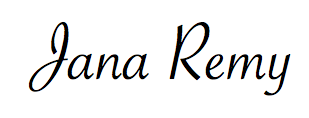Tom Sheinfeldt, of “Found History,” discusses the impact of the “OneWeek | OneTool” project
A nod to my twitter discussion about web-based grade books (as an alternative to proprietary LMS packages), in the Chronicle for Higher Education
From the Graduate Division at UC Irvine: “Student Explores Digital Approach to Historical Scholarship”
My bookshelves, in The New Yorker online: “The Subconscious Shelf”
The American Historical Association blog, linking to my blogposts about Social Media at their annual meeting.
Douglas Knox of the Newberry Library, writing about my Social Media work for “The Past’s Digital Presence” (PDP) conference at Yale on the Humanist listserv:
I did not attend the PDP conference, but of the many recent conferences I have failed to attend, this was one of the most intellectually engaging. I caught some sense of it intermittently through digital humanities folks on
Twitter, enough to make an effort to go back and find out more. The fact that it happened to be at an Ivy location didn’t matter to me; the fact that senior scholars participated did register, but if a sense of intellectual excitement reached me remotely, I was well aware that much more junior people from a variety of places were not just the means of conveyance but largely the source.In addition, what I saw remotely in the conference didn’t suggest to me it was claiming to be a signal moment in the disciplinary institutionalization of “digital humanities” as such. Since reading this thread I have listened to Jana Remy’s podcast of the roundtable, and it seems to me that what Ed Ayers was welcoming was the sign that graduate students within existing humanities disciplines were not waiting for ivy departments and tenured positions to give them permission and make it safe to organize themselves and to think through what digital methods and resources might mean for the intellectual questions they are grappling with in their work.
What I thought I glimpsed between the tweets about PDP2010 was nascent home-grown theory arising out of methodological reflection within historically oriented disciplines. Digital challenges to presumptions about research, evidence, analysis, communication, and audience certainly call for this reflection throughout the humanities, not just in humanities departments but in libraries, archives, museums, and publishing enterprises driven by an intellectual mission. The grad students who came together for PDP recognize the necessity of thinking about, and historicizing, the role of libraries, archives, their own collecting and publishing, and, not least, the dark matter of missing information, in the production of knowledge about the past.
Willard McCarty writing about the PDP conference on the Humanist listserv:
Yesterday, by generous invitation of the organizers, I attended “The Past’s Digital Presence” here at Yale (digitalhumanities.yale.edu/pdp/). This conference was mostly by and for graduate students, though there were a few of us about for whom graduate school is but a memory. To someone who has spent his professional career working in various ways toward the realisation of humanities computing as an institutionally recognised scholarly discipline, this was quite an encouraging, indeed exhilarating experience. Ed Ayres, historian and now President of the University of Richmond, Virginia, summed up the moment by saying that he thought it might well prove a watershed event in the history of our field in the U.S.
What impressed me most was the quality of the work by graduate students from Yale and elsewhere. I treasure most the chance to witness their energies of mind and critical intelligence applied to activities in the digital humanities. Quite independently of the work us older ones have done for so long, these students see the possibilities now visible and question them as befits the humanities. We often bemoan the unthinking acceptance and uncritical uses of computing in evidence all around us. Here was evidence of an altogether different sort. Bravo!
“What is it Like to Do a Birthday Wish?: An Interview with Jana Bouck Remy,” Causes Exchange blog, June 17, 2009.
“Jana Bouck Remy: Someone You Should Know,” The Gimpy Girls blog.
“And Then My Father Had a Coronary,” Dooce.com, August 11, 2008.
The American Historical Association blog, linking to my podcast interview of Laurel Thatcher Ulrich.
“Jana Bouck Remy” in the Mormon Literature Database, Brigham Young University.

